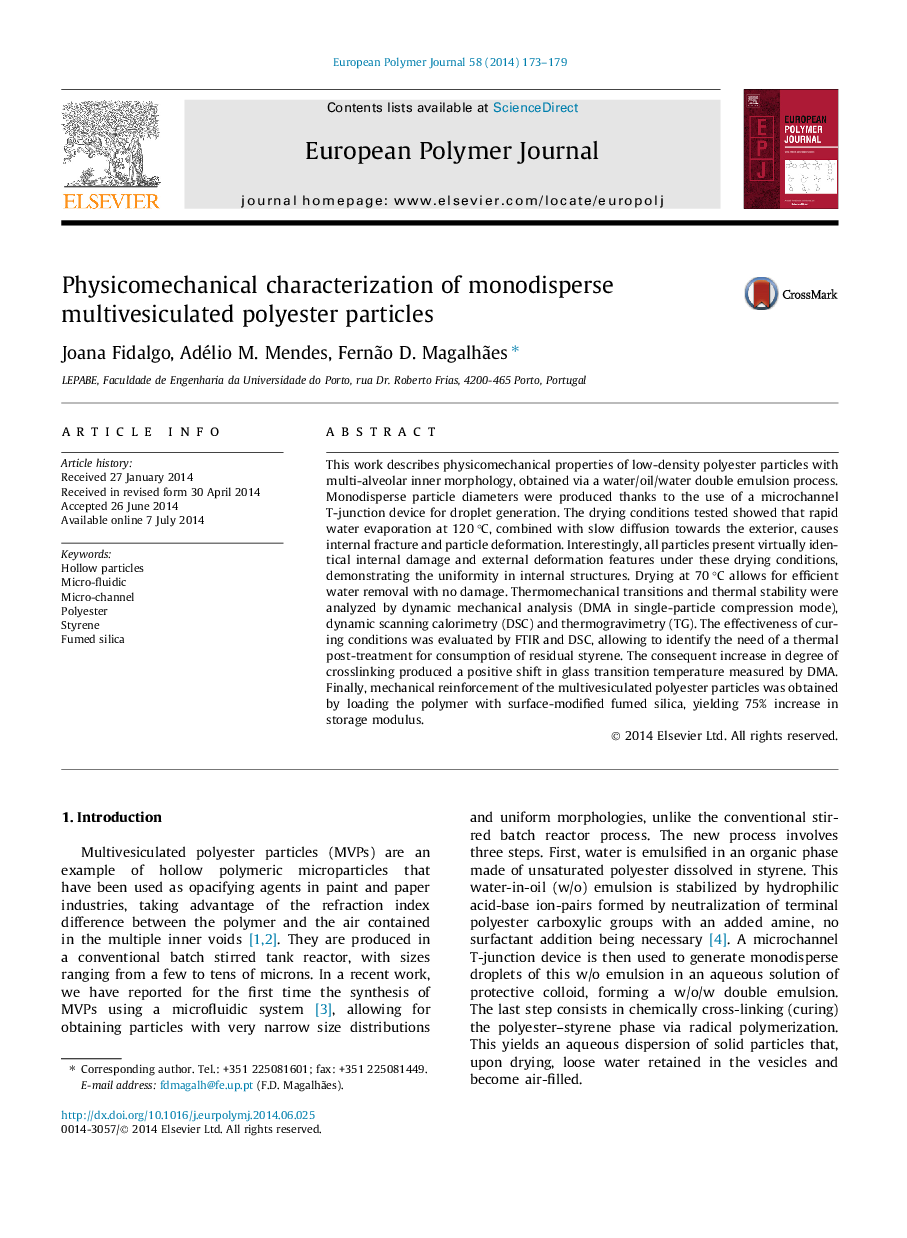| کد مقاله | کد نشریه | سال انتشار | مقاله انگلیسی | نسخه تمام متن |
|---|---|---|---|---|
| 1399354 | 1501377 | 2014 | 7 صفحه PDF | دانلود رایگان |
• Monodisperse multivesiculated polyester particles made via microfluidic approach.
• Rapid drying causes internal rupture and identical deformation on all particles.
• Thermal transition and stability were characterized by DMA, DSC and TGA.
• Loading with nano-silica increases rigidity and glass transition temperature.
This work describes physicomechanical properties of low-density polyester particles with multi-alveolar inner morphology, obtained via a water/oil/water double emulsion process. Monodisperse particle diameters were produced thanks to the use of a microchannel T-junction device for droplet generation. The drying conditions tested showed that rapid water evaporation at 120 °C, combined with slow diffusion towards the exterior, causes internal fracture and particle deformation. Interestingly, all particles present virtually identical internal damage and external deformation features under these drying conditions, demonstrating the uniformity in internal structures. Drying at 70 °C allows for efficient water removal with no damage. Thermomechanical transitions and thermal stability were analyzed by dynamic mechanical analysis (DMA in single-particle compression mode), dynamic scanning calorimetry (DSC) and thermogravimetry (TG). The effectiveness of curing conditions was evaluated by FTIR and DSC, allowing to identify the need of a thermal post-treatment for consumption of residual styrene. The consequent increase in degree of crosslinking produced a positive shift in glass transition temperature measured by DMA. Finally, mechanical reinforcement of the multivesiculated polyester particles was obtained by loading the polymer with surface-modified fumed silica, yielding 75% increase in storage modulus.
Figure optionsDownload as PowerPoint slide
Journal: European Polymer Journal - Volume 58, September 2014, Pages 173–179
